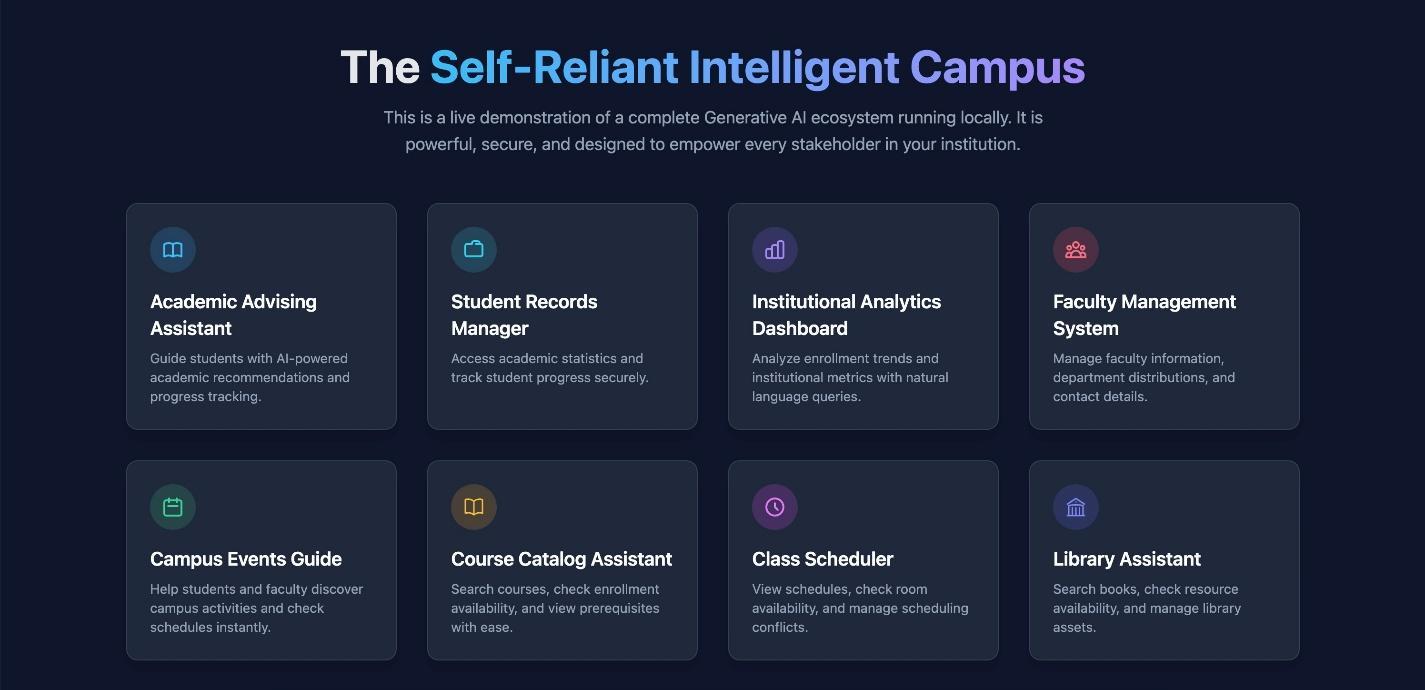
By Ricky Cheng (with inputs from Anne-Marie Scott, Vice President and Balaji V, COL)
Leaders of education across the Commonwealth face a common strategic imperative: how do we prepare our students for an AI-driven future while responsibly navigating its challenges?
The prevailing path to AI adoption often involves reliance on external cloud platforms, raising critical questions about costs, data privacy, and long-term sustainability. This path risks widening the existing digital divide, leaving many institutions behind. The Commonwealth of Learning (COL) proposes an alternative vision: “Frugal AI,” a pathway toward digital self-reliance. This is not merely about acquiring new tools; it is about building sovereign institutional capacity from within.
The Barriers to Equitable AI Adoption
Recent advancements in generative AI present immense opportunities, but for resource- constrained institutions in developing Commonwealth Member Countries, the barriers can be substantial, particularly in three areas.
- First, high entry costs can have prohibitive subscription fees from major AI providers, and the need for specialized, expensive hardware creates a high
barrier to entry. - Second, gaps in skills and infrastructure can create a shortage of local AI talent, and secure, AI-ready servers can lead to a talent drain and technological dependency.
- Finally, fragmented innovation without a central strategy means faculty and students often experiment in isolation, preventing successful prototypes from scaling across the institution.
The Frugal AI Blueprint: Open, Local, and Affordable
To counter these challenges, COL’ s Frugal AI project is built on three pillars designed to deliver an open, local-first, and affordable AI infrastructure:
- Open-Source by Default: We leverage open-source tools and open-weight models that run on standard, locally-owned devices, from laptops to servers. This keeps institutional data secure, prevents vendor lock-in, and fosters local adaptation.
- Offline-First for Resilience: The default mode for Frugal AI is local inference, ensuring data privacy, operational resilience, and predictable costs, independent of internet instability.
- Tiered, Accessible Architecture: We provide open “recipes” and “cookbooks” —tiered blueprints and best practices that allow institutions to adopt a solution that fits their needs and budget, with the ability to scale when ready.
A Prototype Self-Reliant Intelligent Campus
This blueprint enables a powerful vision: a complete generative AI ecosystem that is hosted locally, operates entirely offline, and places control firmly in the hands of the institution.
This “Intelligent Campus” is designed to enhance the core mission of any educational institution:
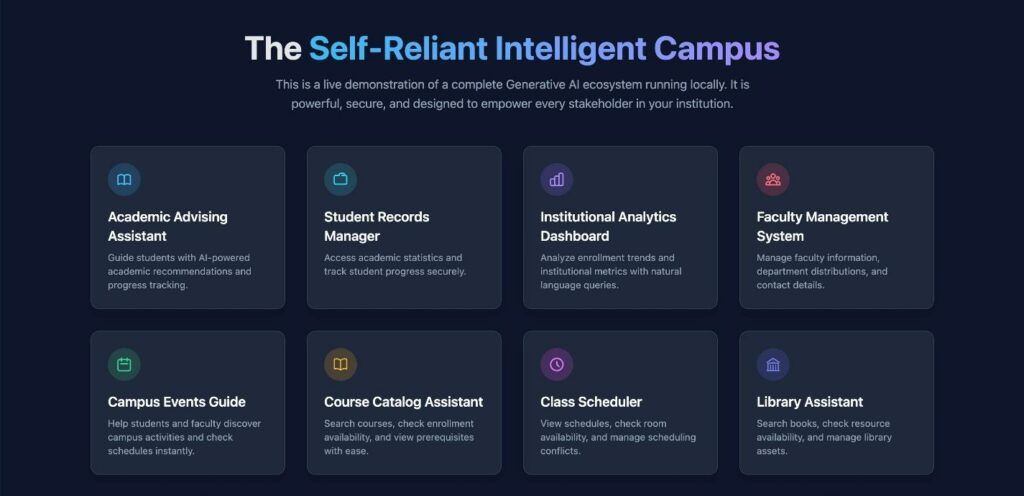
For Students: An AI-powered assistant can help navigate course catalogs, manage schedules, and find library resources, creating a more supportive academic journey.
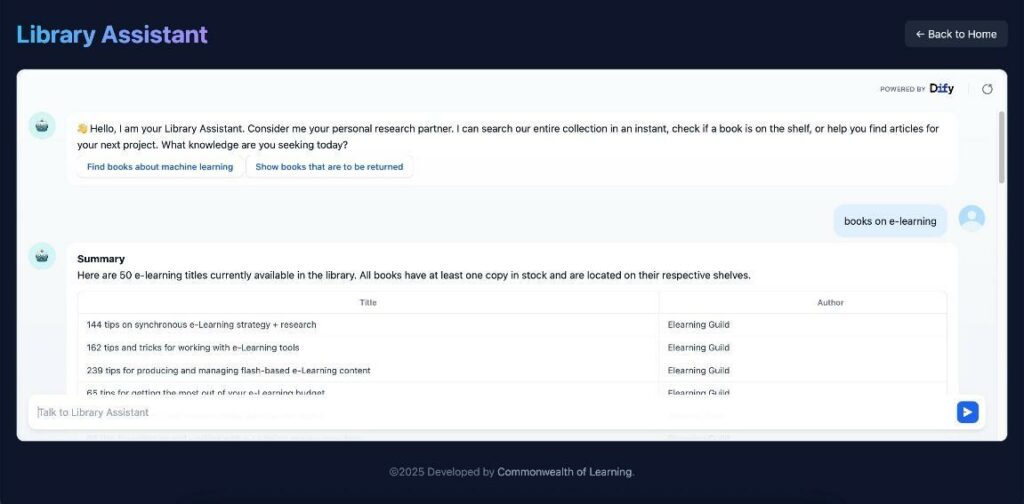
For Faculty and Staff: Administrative and technical processes are streamlined, freeing up valuable time for teaching and research. An instructor could, for instance, get immediate, on-demand guidance on using a learning management system like Moodle.
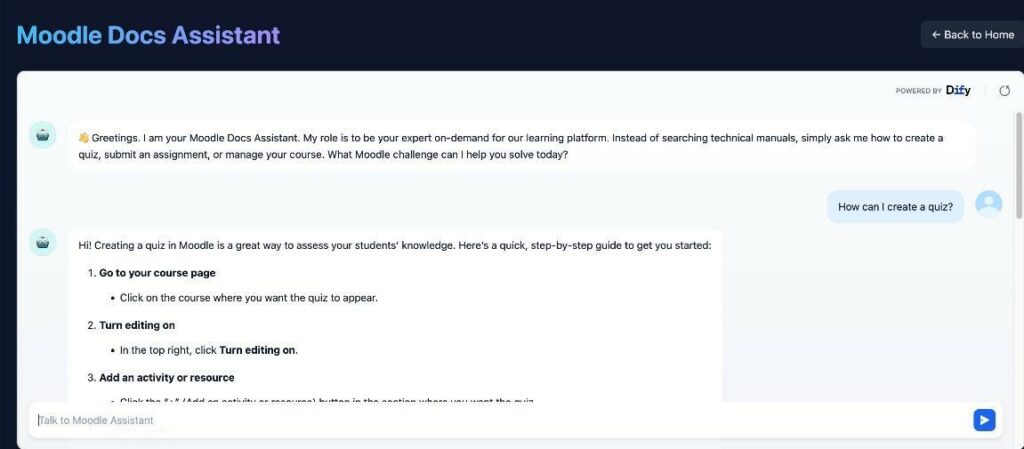
For Leadership: An institutional analytics dashboard provides immediate insights into strategic questions about enrollment trends and student success, enabling proactive, data-informed governance.
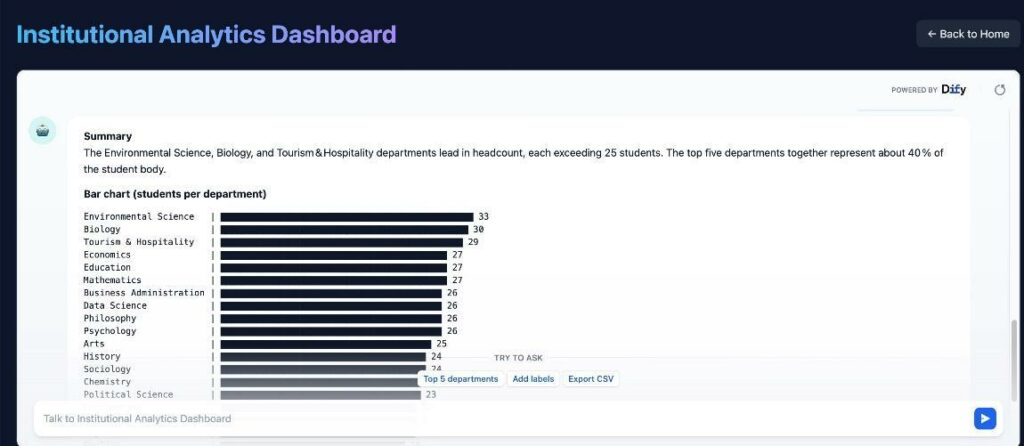
The Core Principle: Building Sovereign Capacity
While the operational benefits are significant, the most profound advantage is sovereignty. This principle rests on several key pillars: data ownership, where institutions retain unequivocal control of their data; economic sustainability, which insulates institutions from the volatile subscription costs of global cloud providers; and human capital development, a crucial investment in people that builds a sustainable pool of local expertise to manage, adapt, and innovate.
A Collaborative Path Forward
This is more than a theoretical concept. COL recently demonstrated a prototype of the Intelligent Campus, operating on a single laptop, to Ministers of Education at PCF11. The significant interest shown underscores the timeliness and relevance of this approach. Frugal AI is not an off-the-shelf product but a foundational capacity that COL will cultivate together with partners. By deploying pilot programs at flagship institutions, we can create a powerful proof of concept and a model for across the Commonwealth. Frugal AI has the opportunity to turn a potential digital divide into a true digital dividend, supporting Collective Action 3 of the Gaborone Statement — where we can ethically leverage AI with data-protection guardrails and promote it as a digital public good.
Follow Ricky Cheng to keep up to date with COL’s work in open and distant education across the Commonwealth.


